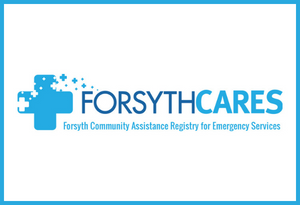- By Lorelei Elkins
- Posted Wednesday, July 7, 2010
Health Effects of Ground Level Ozone
Scientists have been studying the health effects of ozone for many years. They have discovered that ground level ozone (a chief component in SMOG), primarily acts upon the respiratory system. Since we all need to breathe, this is an issue everyone should be concerned with. It is estimated that about one out of three people in the United States is at risk of experiencing ozone related health effects. In North Carolina ground-level ozone is a summer time air quality concern, lasting from the beginning of April through the end of September.
Ozone can irritate your respiratory system. On days when ozone levels are high, you might start coughing or feel as if your throat is irritated. You may experience an uncomfortable sensation or tightness in your chest or burning in your eyes. These symptoms can last for a few hours after exposure to ozone and may even become painful.
Ozone can reduce your lung function.This means that your lungs are not working as efficiently as they should be. The rate and amount of air you can breathe in and exhale is reduced. That means, not as much oxygen is brought into the body to the organs and muscles. You may notice you are taking more rapid or shallower breaths than normal. This can be a particular problem for athletes, outdoor workers or other people who are active outdoors. Studies have shown that repeated ozone damage to developing lungs in children may have the more long term consequence of reduced lung function when they are adults.
Ozone can make asthma worse. When ozone levels are high, more people with asthma have attacks, and they tend to be more severe, often requiring the attention of a doctor or increased medication use. There is also an increase in emergency department visits on days when the ozone levels are high, plus up to three days after high ozone episodes.
Ozone can damage the lining of the lungs. Ozone damage to the lungs is often compared to sunburn. The cells that line the lungs are damaged. After a few days, the damaged cells are replaced, just like our skin peels after being sunburned. However, if this kind of damage occurs repeatedly, it can lead to permanent damage to lung tissue.
Ozone can make allergies worse.High ozone levels may make people more sensitive to allergens. Allergy sufferers tend to have worse symptoms when air pollution levels are high.
Ozone may cause other health problems. Ozone can aggravate chronic lung disease, such as emphysema, bronchitis and COPD. Studies suggest that exposure to ozone may also reduce the immune system’s ability to fight off bacterial infections in the respiratory system.
Who is at the greatest risk from ground-level ozone? Several groups are more sensitive to ozone when they are physically active outdoors.
- Children: Active children are the group at highest risk from ozone exposure, since their lungs are still growing and developing. Children tend to be more active outdoors, and spend more time outdoors during ozone season. They tend to breathe faster and deeper, allowing ozone to penetrate deeper into the lungs, increasing the likelihood of damage. Also, asthma is the most common chronic disease for children and can be aggravated by ozone exposure.
- Active Adults: Adults who are active outdoors either exercising or working vigorously are considered a sensitive group since they have a greater exposure to ozone than people who are less active or spend more time indoors.
- Individuals with Respiratory Diseases: Asthma or other chronic respiratory diseases make lungs more vulnerable to the effects of ozone.
- People with Unusual Sensitivity to Ozone: Some healthy people are more sensitive to ozone than others. Scientists are not sure yet why this is so, but these people may experience more health effects from ozone than the average person.
- The Elderly: Older adults are likely to suffer from high ozone levels. This is especially true if they have other illnesses such as diabetes, heart or lung disease, or other illnesses.
What to do to protect your health. The most important thing you can do to protect your health, and the health of your family, is to pay attention to the air quality forecast, understand what the Air Quality Index means, and reduce your outdoor physical activity on Air Quality Action Days.
Air Quality Forecast information can be found at www.triadair.org.













